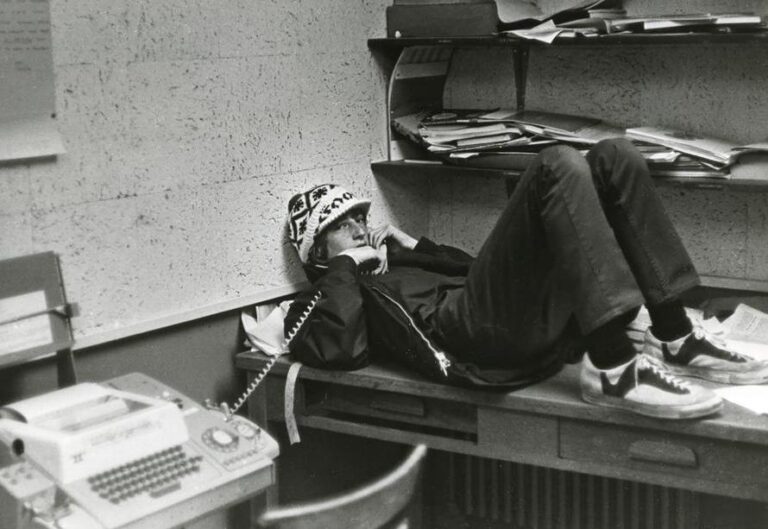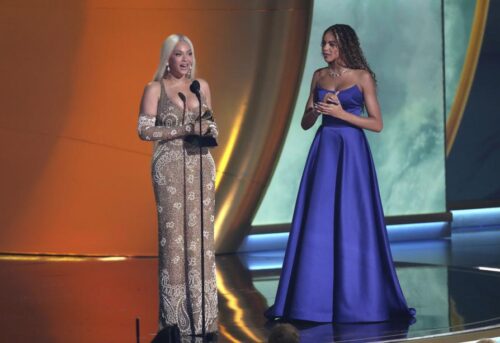Bill Gates was in Boston on Monday talking about his new book, “Source Code: My Beginnings,’’ at an event sponsored by the Harvard Book Store. And while he had the image of a cutthroat businessman back in his days running Microsoft, Gates displayed an empathetic, thoughtful, even soulful outlook on life.
Speaking with Harvard professor Henry Louis Gates Jr., the billionaire opened up about his childhood therapy sessions, his sometimes rocky relationship with his parents and teachers, and the grief he felt when his high school best friend, Kent Evans, died in a mountain climbing accident in 1972 — all topics covered in his book. (Harvard Book Store co-owner John Henry also owns The Boston Globe.)
As a boy, the future founder of a trillion-dollar software giant showed promise but wasn’t much interested in school work. “I had teachers who wanted to put me ahead in school,’’ Gates recalled. “I had teachers who wanted to push me back in school — the same year, not the same teacher.’’
If he was growing up today, Gates speculated, he might be diagnosed on the autism spectrum, given his ability to concentrate deeply, lack of social skills, and his famous rocking back and forth during conversations.
“If I’m thinking hard about something, I can start rocking and I don’t even know I’m doing it,’’ Gates said, even as he sometimes rocked during Monday’s event. “I’m somewhere on that spectrum, even though I don’t have a formal diagnosis, but I have very, very little doubt.’’
Meeting Evans in eighth grade had a dramatic impact, as Gates’ new friend was focused on getting ahead and excelling in school. The teenage Evans carried a briefcase and read Fortune magazine. “We both had this optimistic view that the world is going to embrace us,’’ Gates said. “We talked every night.’’
Gates recounted getting a phone call from his school telling him that his friend had died in a mountain climbing accident. “I thought he was just gone for the weekend, and the headmaster called to say that Kent had died,’’ Gates said, his voice cracking. “My whole childhood, other than that, is pretty ideal.’’
The world’s most famous Harvard dropout expressed love for his time at the university but little excitement about finally being awarded an honorary degree in 2007. “For my dad, it was fun for him to be there,’’ Gates replied when asked what he felt about the award.
His top college memories included ignoring some classes until Harvard’s weeklong reading period at the end of each semester, staying up late talking to smart people, and getting end-of-night discounted pizza slices at Pinocchio’s. “I was there just recently and they still do that,’’ Gates said.
Gates expressed regret about how he treated another boyhood friend, Paul Allen, the other cofounder of Microsoft, who died in 2018. Gates at first took 60 percent ownership of the new software company and then pressured his friend for another 4 percent. “I feel bad about it in retrospect,’’ he said. “That was always a little complicated, and I wish I hadn’t pushed.’’
Henry Louis Gates eventually came around to the hot button topics of the day. Bill Gates generally defended programs to promote diversity, including his foundation’s Millennium Scholarships, which go only to students of color.
“That’s a scholarship just for minorities trying to help them, given the historic imbalance, both to lift them up and hopefully to be an example in their communities,’’ Gates said. “I feel that’s been a big success. If you took an extreme view — the direction some people are going in — even having a minority scholarship like that would not be allowed.’’
As the talk wound down, Gates offered a mixed view of artificial intelligence, suggesting it could help solve many problems but also be used for bad purposes.
“The naiveté I had that free computing would just be this unadulterated good thing wasn’t totally correct even before AI,’’ Gates said. “And now with AI, I can see that we could shape this in the wrong way.’’
The diverse crowd at the talk, including people of all ages and races, walked out burbling about the billionaire’s anecdotes and advice.
John Cooke, a Harvard senior who is taking a class with professor Gates, came bedecked in a Harvard sweater.
“His story seems very inspiring’’ Cooke said. He was also attending to support his professor, he said. “It’s hard to keep all these Gateses separate.’’
Aaron Pressman can be reached at aaron.pressman@globe.com.


